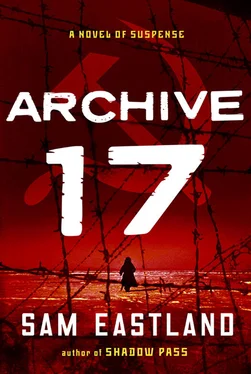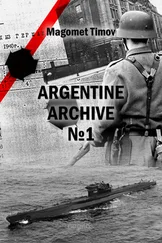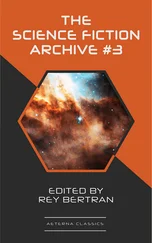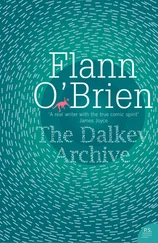Sam Eastland - Archive 17
Здесь есть возможность читать онлайн «Sam Eastland - Archive 17» весь текст электронной книги совершенно бесплатно (целиком полную версию без сокращений). В некоторых случаях можно слушать аудио, скачать через торрент в формате fb2 и присутствует краткое содержание. Жанр: Исторический детектив, на английском языке. Описание произведения, (предисловие) а так же отзывы посетителей доступны на портале библиотеки ЛибКат.
- Название:Archive 17
- Автор:
- Жанр:
- Год:неизвестен
- ISBN:нет данных
- Рейтинг книги:3 / 5. Голосов: 1
-
Избранное:Добавить в избранное
- Отзывы:
-
Ваша оценка:
- 60
- 1
- 2
- 3
- 4
- 5
Archive 17: краткое содержание, описание и аннотация
Предлагаем к чтению аннотацию, описание, краткое содержание или предисловие (зависит от того, что написал сам автор книги «Archive 17»). Если вы не нашли необходимую информацию о книге — напишите в комментариях, мы постараемся отыскать её.
Archive 17 — читать онлайн бесплатно полную книгу (весь текст) целиком
Ниже представлен текст книги, разбитый по страницам. Система сохранения места последней прочитанной страницы, позволяет с удобством читать онлайн бесплатно книгу «Archive 17», без необходимости каждый раз заново искать на чём Вы остановились. Поставьте закладку, и сможете в любой момент перейти на страницу, на которой закончили чтение.
Интервал:
Закладка:
“I would realize I had no choice,” replied Pekkala.
With a scythe-like sweep of his hand, Stalin brushed aside Pekkala’s words. “But I did give them a choice!”
“No, Comrade Stalin, you did not.”
Stalin smiled. “That is why you have survived, and why those other men will not.”
As soon as Pekkala had departed, Stalin pushed the intercom button. “Poskrebyshev!”
“Yes, Comrade Stalin.”
“All messages between Pekkala and Major Kirov are to be intercepted.”
“Of course.”
“Whatever Pekkala has to say, I want to read it before Kirov does. I want no secrets kept from me.”
“No, Comrade Stalin,” said Poskrebyshev, and a fresh coat of sweat slicked his palms.
The intercom button stayed on, whispering static into Stalin’s ears. “Is there anything else, Poskrebyshev?”
“Why do you let Pekkala speak to you that way? So disrespectfully?” Over the years, Poskrebyshev had advanced to the stage where he could occasionally express an unsolicited opinion to the Boss, although only in the most reverent of tones. But the way Pekkala talked to Stalin caused Poskrebyshev’s bowels to cramp. Even more amazing to him was the fact that Stalin let Pekkala get away with it. In asking such a question, Poskrebyshev was well aware that he had overstepped his bounds. If the answer to his question was a flood of obscenities from the next room, he knew he would have only himself to blame. Nevertheless, he simply had to know.
“The reason I endure his insolence-unlike, for example, yours, Poskrebyshev-is that Pekkala is the only person I know of who would not kill me for the chance to rule this country.”
“Surely that is not true, Comrade Stalin!” protested Poskrebyshev, knowing perfectly well that whether it was true or not, what mattered was that Stalin believed it.
“Ask yourself, Poskrebyshev-what would you do to sit where I am sitting now?”
An image flashed through Poskrebyshev’s mind, of himself at Stalin’s desk, smoking Stalin’s cigarettes and bullying his very own secretary. In that moment, Poskrebyshev knew that, in spite of all his claims of loyalty, he would have gutted Stalin like a fish for the chance to take the leader’s place.
One hour later, as the last rays of sunset glistened on the ice-sheathed telegraph wires, Pekkala’s battered Emka staff car, driven by his assistant, Major Kirov, pulled into a rail yard at mile marker 17 on the Moscow Highway. The rail yard had no name. It was known simply as V-4, and the only trains departing from this place were convict transports headed for the Gulags.
However miserable the journey promised to be, Pekkala knew it was necessary to travel as a convict in order to protect the cover story that he had fallen out of favor with Stalin and received a twenty-year sentence for unspecified crimes against the State.
Major Kirov pulled up behind some empty freight cars, cut the engine, and looked out across the rail yard, where prisoners huddled by the wagons which would soon be taking them away.
“You can still call this off, Inspector.”
“You know that is impossible.”
“They have no right to send you back to that place, even if it is to carry out an investigation.”
“There is no ‘they,’ Kirov. The order came directly from Stalin.”
“Then he should at least have given you time to study the relevant files.”
“It wouldn’t have made any difference,” Pekkala answered. “The victim’s dossier is incomplete. There was only one page. The rest of it must be lost somewhere in NKVD archives. As a result, I know almost nothing about the man whose death I am being sent to investigate.”
The train whistle blew, and the prisoners began to climb aboard.
“It is time,” said Pekkala. “But first, there is something I need you to look after while I’m gone.” Into Kirov’s hand Pekkala dropped a heavy gold disk, as wide across as the length of his little finger. Along the center was a stripe of white enamel inlay, which began at a point, widened until it took up half the disk and narrowed again to a point on the other side. Embedded in the middle of the white enamel was a large round emerald. Together, the elements formed the unmistakable shape of an eye.
Pekkala had already been working for two years as the Tsar’s Special Investigator when the Tsar summoned him one evening to the Alexander Palace, his residence on the Tsarskoye Selo estate .
Entering the Tsar’s study, Pekkala found him sitting in a chair by the window. He was relieved that the Tsar did not get up. In Pekkala’s experience, if the Tsar remained seated when he entered the room, the meeting would go well. If the Tsar rose to his feet, however, Pekkala could be sure that the man’s temper had already been lost .
Beside the Tsar’s chair stood a small table, on which a candle burned. This was the only light source in the room, and in that glowing pool, the Tsar seemed to float like a mirage .
With his soft blue eyes, the Tsar regarded Pekkala. “I have decided that the title of Special Investigator lacks”-he twisted his hand in the air, like the claw of a barnacle sweeping through an ocean current-“the gravity of your position. There are other special investigators in my police force, but there has never been a position quite like yours before. It was my grandfather who created the Gendarmerie and my father who established the Okhrana. But you are my creation, for which I have also commissioned an appropriate symbol of your rank.”
It was then that the Tsar presented Pekkala with the medallion which would soon earn him the title “Emerald Eye.”
The Tsar rose from his chair and, taking the badge from its velvet cushion, pinned it to the cloth beneath the right lapel of Pekkala’s jacket. “As my personal investigator, you will have absolute authority in the fulfillment of your duties. No secrets may be withheld from you. There are no documents you cannot see upon request. There is no door you cannot walk through unannounced. You may requisition any mode of transport on the spot if you deem it necessary. You are free to come and go where you please and when you please. You may arrest anyone who you suspect is guilty of a crime. Even me.”
“Excellency …”
The Tsar held up a hand to silence him. “There can be no exceptions, Pekkala. Otherwise it is all meaningless. I entrust you with the safety of this country and also with my life and the lives of my family.” The Tsar paused. “Which brings us to the contents of this box.”
From a large mahogany case beside his chair, the Tsar removed a brass-handled Webley revolver .
“It was given to me by my cousin George V.”
Pekkala had seen a picture of them together, hanging on the wall of the Tsar’s study-the King of England and the Tsar of Russia, two of the most powerful men in the world. The two men looked almost identical. Their expressions were the same, the shapes of their heads, their beards, their mouths, noses, and ears alike. Only their eyes showed any difference-the King’s looked more round than those of the Tsar .
“Go on.” The Tsar held out the gun. “Take it.”
The weapon was heavy but well balanced. Its brass grips felt cold against Pekkala’s palm. “It is very fine, Excellency, but you know how I feel about gifts.”
“Who said anything about a gift? That and the badge are the tools of your trade, Pekkala. I am issuing them to you the same as any soldier in the army is issued what he needs for his work.”
Now Kirov closed his fingers around the badge. “I will take good care of it until you return, Inspector.”
“The Webley is in my desk drawer,” added Pekkala, “although I know you are more partial to your Tokarev.”
Читать дальшеИнтервал:
Закладка:
Похожие книги на «Archive 17»
Представляем Вашему вниманию похожие книги на «Archive 17» списком для выбора. Мы отобрали схожую по названию и смыслу литературу в надежде предоставить читателям больше вариантов отыскать новые, интересные, ещё непрочитанные произведения.
Обсуждение, отзывы о книге «Archive 17» и просто собственные мнения читателей. Оставьте ваши комментарии, напишите, что Вы думаете о произведении, его смысле или главных героях. Укажите что конкретно понравилось, а что нет, и почему Вы так считаете.











